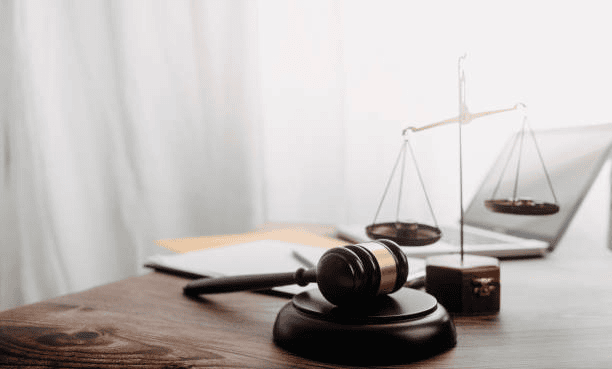Some expressions have a lot of weight in the legal world, particularly in the state of New South Wales (NSW). As an example, consider the idea of the phrase “prima facie,” which is fundamental to many court processes. Delving into its roots, legal ramifications, and practical applications is essential for defining prima facie in the context of NSW law.
The Essence of Prima Facie in NSW Legal Proceedings
To define prima facie, one must look at its Latin roots, translating to “at first glance” or “on its face.” In NSW legal contexts, to define prima facie is to refer to evidence that, in the absence of rebuttal, is sufficient to prove a particular fact or particular proposition. It denotes evidence that, unless contradicted, would be enough to sway a decision or a judgement.
Key Components of Prima Facie Evidence
When we define prima facie evidence, we speak of certain foundational elements. Firstly, the evidence must be legally admissible. It should be relevant, reliable, and credible. In addition, the standard to define prima facie evidence is not as high as ‘beyond reasonable doubt’, a term often used in criminal cases, but rather it must be credible enough to warrant belief.
Prima Facie in Various Legal Contexts
To comprehensively define prima facie, it’s crucial to explore its application across diverse legal scenarios. In civil cases, to define prima facie might involve proving a breach of contract with enough evidence to support the claim, unless the opposing party can provide substantial contradicting evidence. In criminal law, the prosecution must establish a prima facie case before the defence is called to respond.
The Role of Prima Facie in Legal Strategy
Legal professionals often rely on establishing a prima facie case to move proceedings in their favour. To define prima facie in strategy, it’s about presenting enough compelling evidence early in the process to create a strong initial position. This approach can influence the direction of a case, shaping the responses and defences from the opposing side during an initial examination.
The Burden of Proof and Prima Facie
Central to understanding how to define prima facie is the concept of the burden of proof. In NSW legal practice, the party alleging a fact often bears the burden of proving it. Establishing a prima facie case shifts this burden to the opposing party, who then must disprove or counter the evidence.
Challenges in Establishing Prima Facie Cases
While it may seem straightforward to define prima facie and its application, establishing a prima facie case can be complex. It involves careful selection and presentation of evidence, and understanding the nuances of how much and what type of evidence suffices to meet the prima facie threshold.
Prima Facie in Employment Law and Discrimination Cases
In employment and discrimination cases in NSW, the ability to define prima facie and apply it effectively is crucial. For instance, if an employee alleges discrimination, they must establish a prima facie case showing that discrimination likely occurred. The employer must then provide a legitimate, non-discriminatory reason for their actions.

The Intriguing Legal Battle of Illich v Woodburn
The case of “Illich v Woodburn [2004] WASCA 148” presents an intriguing legal narrative centred around a speeding offence in Western Australia. This case delves into the complexities of prima facie evidence and its pivotal role in most legal proceedings.
The Heart of the Matter: Prima Facie Evidence in Focus
- Incident Overview: At the core of the case was the allegation against George Woodburn, accused of driving at 84 km/h in a 60 km/h zone. His alleged speeding was recorded by a multanova camera, a key piece of evidence in the trial.
- Initial Court Proceedings: The Magistrate dismissed the charge against Woodburn, leading to an appeal. The essence of the appeal was not just about a speeding ticket but about the proper application and understanding of prima facie evidence.
The Appeal: Questioning Legal Interpretations
- Key Issues Raised: Paul Stephen Illich, the appellant, challenged the Magistrate’s handling of the Road Traffic Act 1974 and the interpretation of the multanova camera’s readings as prima facie evidence.
- Magistrate’s Missteps: The Magistrate’s error lay in misinterpreting the role of prima facie evidence. He incorrectly shifted the focus to whether an adjacent vehicle could have influenced the camera, rather than assessing the prima facie evidence against Woodburn.
Prima Facie Evidence: A Legal Cornerstone
- Defining Prima Facie: Prima facie evidence, crucial in legal battles, is evidence that, unless rebutted, suffices to prove a fact. In “Illich v Woodburn,” the camera’s reading was this critical piece of evidence.
- Challenges and Counterarguments: Woodburn’s defence hinged on challenging the camera’s accuracy, citing potential interference from a nearby vehicle. This rebuttal was crucial in contesting the prima facie evidence presented by Illich.
Judicial Analysis and Final Verdict
- Critique of Original Verdict: Jenkins J critiqued the original ruling, highlighting the misapplication of the Road Traffic Act 1974 and the misunderstanding of prima facie evidence.
- Outcome of the Appeal: The appeal led to the quashing of the original dismissal, with the case being remitted for a new hearing. This decision underscored the need for a balanced evaluation of prima facie evidence against any counterclaims.
Prima Facie and Its Impact on Legal Outcomes
To define prima facie is also to understand its potential impact on legal outcomes. A well-established prima facie case can lead to early settlements, influence jury perceptions, or even result in summary judgments, thereby avoiding the need for a full trial.
The Evolving Nature of Prima Facie
As legal systems evolve, so does the way we define prima facie or prima facie duties. Changes in laws and societal norms influence how prima facie evidence is viewed and applied in courts. Keeping abreast of these changes is essential for legal practitioners in NSW.

The Path Ahead: Your Legal Journey with Prima Facie
Understanding and effectively utilising the concept of prima facie can be a decisive factor in the outcome of legal proceedings in NSW. It’s a tool that, when wielded with expertise and precision, can significantly influence the course of a case. For individuals and entities embarking on this legal journey, partnering with knowledgeable legal professionals like JB Solicitors can make all the difference.
Contact us today if you want to present prima facie evidence at the local or supreme court.
